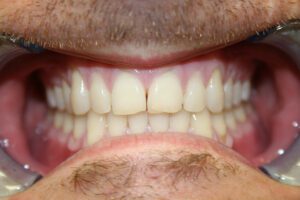 A dry socket is a common problem and it is a dental health issue that can be fixed easily. However, if you neglect it, it can have serious consequences. If you believe you may have a dry socket, it is essential to go to your dentist right away.
A dry socket is a common problem and it is a dental health issue that can be fixed easily. However, if you neglect it, it can have serious consequences. If you believe you may have a dry socket, it is essential to go to your dentist right away.
What Is a Dry Socket?
Dry socket usually occurs after tooth extraction. Normally, after a tooth is extracted, a blood clot forms over the socket, the place where the extracted tooth was. This way the wound isn’t exposed and can heal nicely. As you know, your mouth is full of bacteria. The food you eat, cigarettes, alcohol, and other beverages might stand in the way of proper healing. The blood clot serves as a protecting shield against all these.
The problem starts when this blood clot doesn’t form properly or is removed accidentally. If this occurs, the wound gets exposed and there is a big chance that it will get infected. Usually, this is indicated by throbbing pain and mouth odor. Some pain is normal after your tooth was extracted, however, this shouldn’t get worse. If the pain gets worse after a day or two, it is possible that you have a dry socket.
Some clear symptoms of dry socket include:
- Pain
- Swelling of the lymph nodes
If you experience any of these symptoms, go to your dentist immediately as these symptoms can be a sign of infection.
You can look at the site of the tooth extraction yourself. If you see no blood clot or it is very small, you probably have a dry socket. Don’t panic, your dentist will take care of it right away; it is a condition that is pretty common.
How Can I Prevent Dry Socket?
Here are some tips you should keep after a tooth extraction to avoid developing a dry socket:
- Avoid dissolving or destroying the formed clot.
- Don’t drink alcohol and hot beverages for a few days.
- Wash your teeth gently, avoiding brushing on the site of the extraction.
- If you use a mouthwash, be gentle with the rinsing.
What Causes Dry Socket?
There are some habits that can lead to the development of dry sockets. These include:
- Smoking cigarettes
- Drinking alcohol
- Taking pills, such as contraceptives
Good oral hygiene is important in the prevention of many oral health problems. People who experienced dry sockets are often prone to getting it again. You can take care of your teeth by brushing them daily, using mouthwash, and flossing regularly. By following these tips and visiting your dentist on a regular basis, you can prevent most dental problems.

